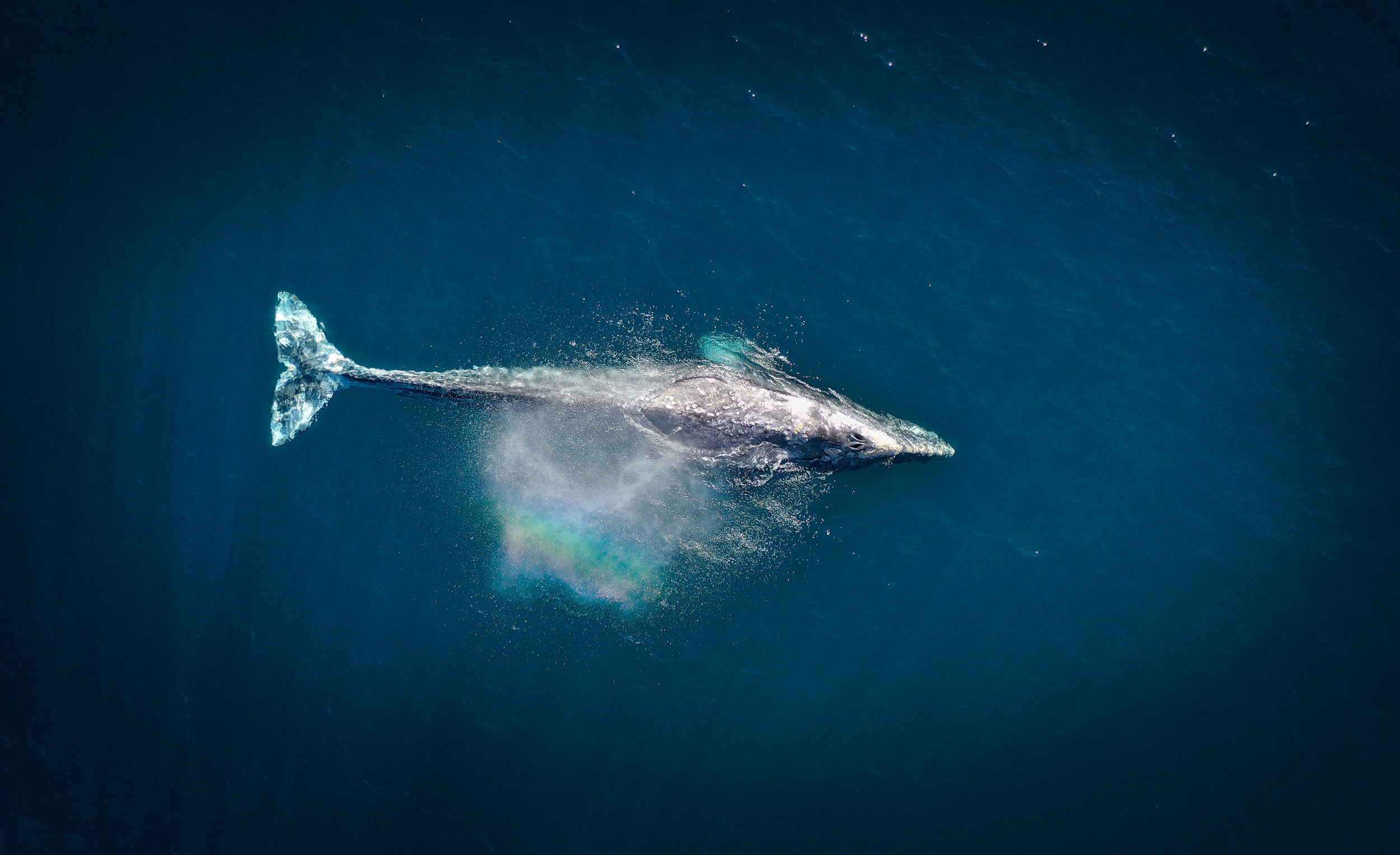The origin of Marine Phytoplankton dates back to 2.5 billion years ago. These organisms were responsible for the production of oxygen. In this way, they turned the atmosphere of our planet into a „breathable“ environment.
Whales Are Eating Phytoplankton
Marine Phytoplankton supports practically all marine life and thus all life on land. Marine Phytoplankton accounts for about a quarter of all. According to NASA, vegetation (land and water) is responsible for an estimated 50% – 80% of the oxygen in the air we breathe.
Phytoplankton amazingly produces more oxygen than all the Earth’s forests together!
The most important food in the world
Research suggests that marine Phytoplankton could be the most
important food in the world – because of its nutritional content and also because it is food for everything on Earth – these organisms represent the original meaning of “food.”
One of nature’s great ironies is that unicellular Marine Phytoplankton.
(the world’s smallest plant organism) feeds nature’s most prominent animal – the gigantic blue whale. Blue whales are the largest animals and can weigh up to 200 tons. This king of the oceans feeds exclusively on marine Phytoplankton and certain krill types (krill, in turn, only eats Phytoplankton). Whales have giant brains and the healthiest nervous systems of all animals, and their lifespan ranges from 80 to 200 years.
Marine Phytoplankton also produces more sulfur than all of the Earth’s life forms – including by-products of sulfur (DMSP and DMS). When they evaporate over the ocean, clouds form over the Phytoplankton, protecting it from excessive sun exposure. When such clouds form, Phytoplankton slows or stops its sulfur production. This closed-loop reaction is very likely the basis of global weather systems. Subsequent rain spreads this bioavailable sulfur worldwide and passes it on to all land plants and animals.
Marine Phytoplankton contains a unique combination of vital nutrients, including omega-3 fatty acids, nucleotides, DNA, RNA, proteins, chlorophyll, vitamins, minerals, trace elements, and polysaccharides.
Nothing of the Phytoplankton wasted
Probably the most significant peculiarity of Phytoplankton:
It is almost 100% utilizable for the human body. When you eat it, your body can absorb it entirely because the microscopic particles are absorbed directly through the mucous membranes. It is impressive because even the healthiest foods contain less than 50% absorbable and available nutrients.






